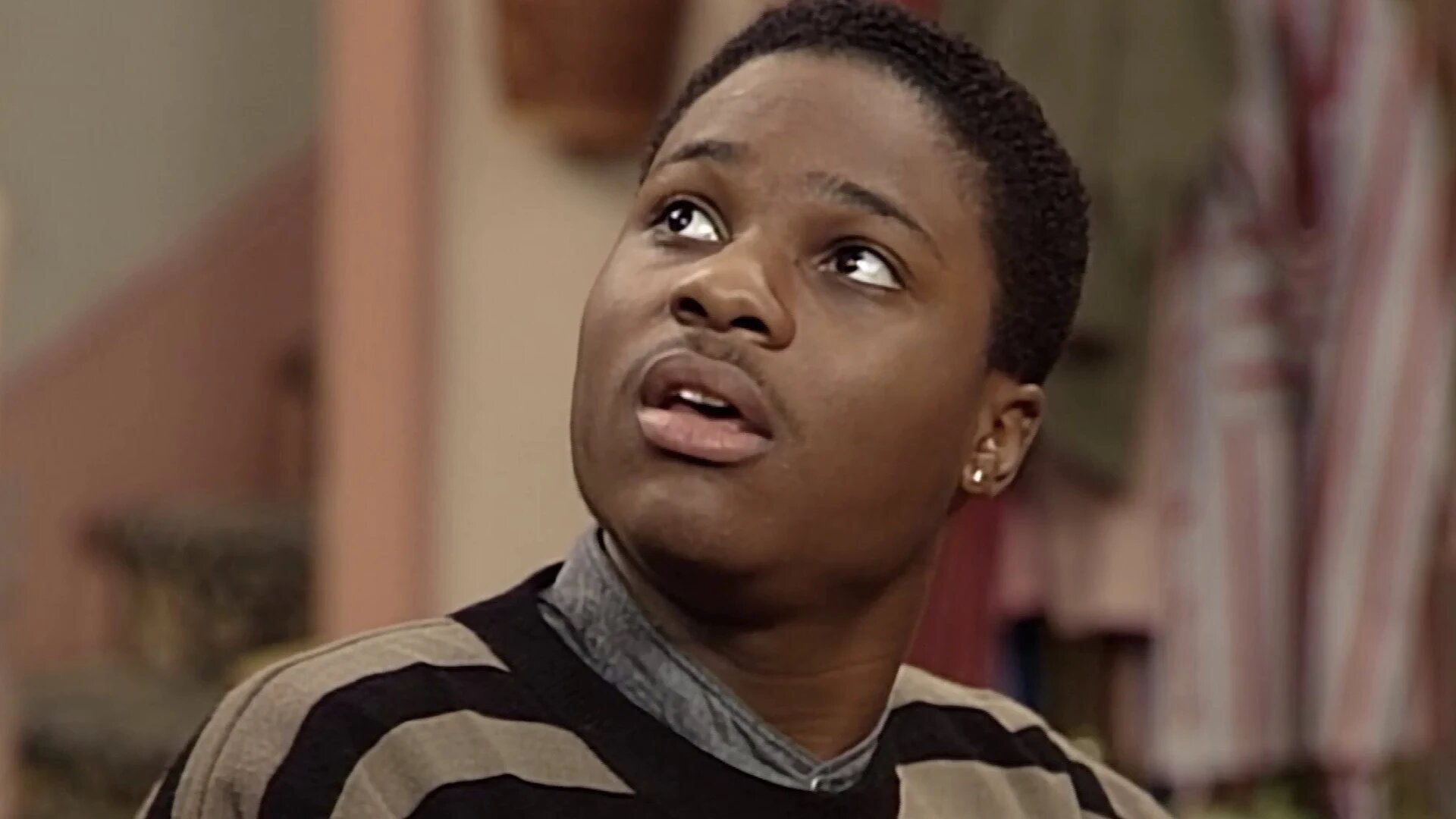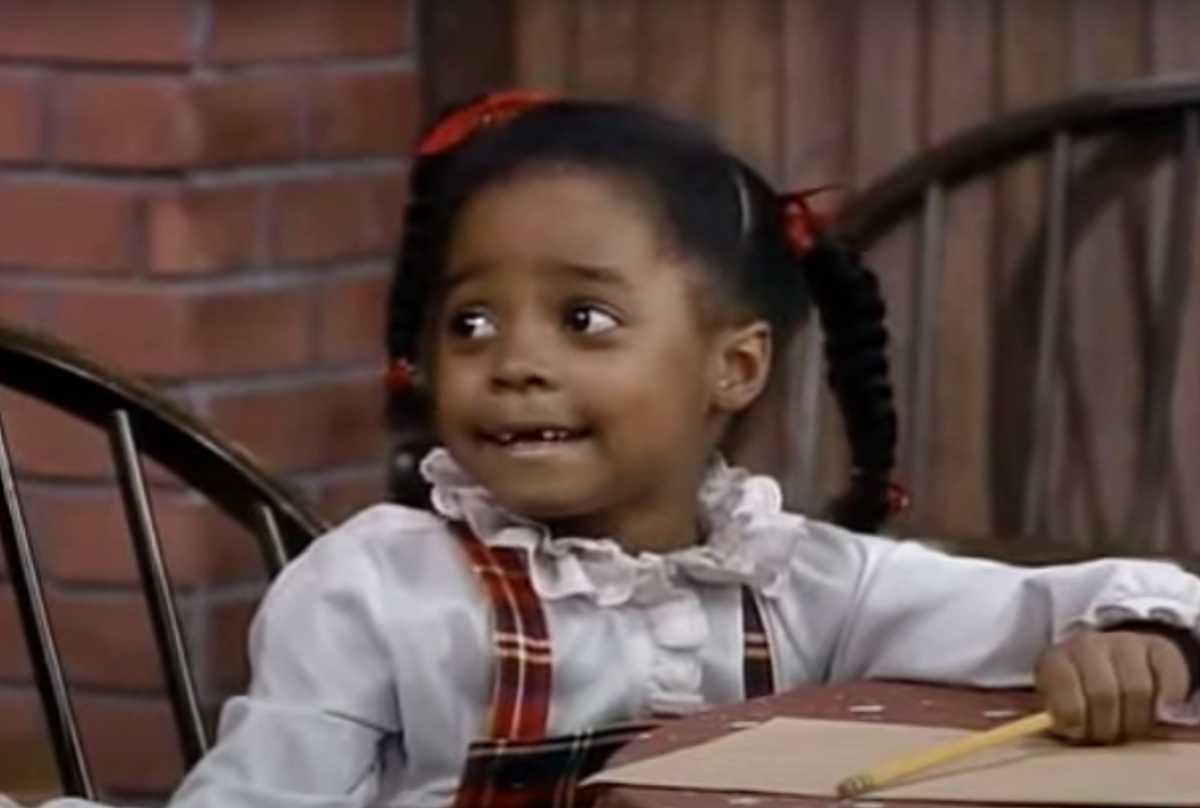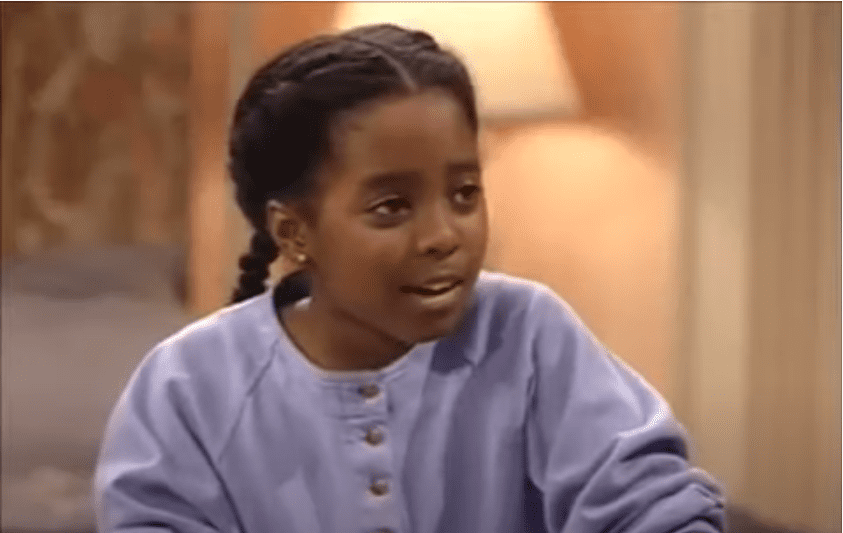Meet Rudy Huxtable, the youngest member of the beloved Huxtable family from The Cosby Show, who became a household name during the series' run from 1984 to 1992. Played by actress Keshia Knight Pulliam, Rudy was more than just a cute kid—she was a symbol of childhood innocence, curiosity, and joy. Her quirky personality, infectious laugh, and unique perspective on life made her stand out in a show full of unforgettable characters. In this article, we’ll dive deep into Rudy’s world, exploring her background, how her character developed over the years, and her lasting legacy in pop culture.
But Rudy wasn’t just a lovable character; she was also a trailblazer. For many young African American kids, Rudy was one of the first representations of themselves they saw on mainstream TV. Her storylines often tackled themes like family, education, and personal growth, making her relatable to viewers of all ages. Whether it was her playful antics or her heartfelt moments, Rudy’s journey was one of the most memorable parts of The Cosby Show. So let’s take a closer look at what made Rudy so special and why she continues to inspire us today.
As we explore the life of Rudy Huxtable, we’ll uncover the details of her character development, the real-life actress behind her, and the impact she had on television history. This isn’t just about a TV character—it’s about understanding the making of a cultural icon who continues to inspire future generations. Let’s get started!
Read also:Jim Parsons The Remarkable Journey Of A Beloved Actor
All About Rudy Huxtable
Rudy’s Early Days
Rudy Huxtable, whose full name is RuPaul Andre Huxtable, was the youngest child of Cliff and Claire Huxtable, the dynamic duo at the center of The Cosby Show. Born on February 4, 1979, Rudy made her debut in the second season of the series, bringing a fresh and curious energy to the show. Her character was a blend of innocence, mischief, and intelligence, which made her an instant fan favorite. Rudy’s world was filled with questions—she was always trying to understand the world around her, and her childlike curiosity often led to some of the funniest moments in the series.
Throughout the show, Rudy’s storylines revolved around her experiences as a young girl growing up in a loving and supportive family. Whether it was trying to impress her older siblings, dealing with the ups and downs of school, or simply navigating the challenges of being a kid, Rudy’s interactions with her family were always filled with warmth and humor. Her relationship with her dad, Cliff, was especially special—there was a bond there that viewers couldn’t help but love. It was clear that Rudy wasn’t just a funny character; she was a reflection of what it meant to grow up in a family that supported and cherished her.
Rudy’s Stats and Facts
Here’s a quick look at the key details about Rudy Huxtable:
| Name | RuPaul Andre Huxtable (Rudy Huxtable) |
|---|---|
| Birthdate | February 4, 1979 |
| Family | Parents: Cliff and Claire Huxtable; Siblings: Sondra, Denise, Vanessa, Theo, and later, Olivia |
| Occupation | Student (throughout the series) |
| Character Traits | Innocent, curious, mischievous, intelligent |
Rudy’s Role in The Cosby Show
How Rudy Grew Up on TV
Rudy’s character went through a lot of changes over the course of the series. When she first appeared, she was a precocious toddler who was full of questions and wonder. But as the show progressed, Rudy grew up right before our eyes. She became more confident, more independent, and more aware of the world around her. This evolution allowed the writers to explore more complex storylines, tackling issues like education, friendship, and self-esteem. Rudy’s interactions with her siblings and friends provided some of the funniest and most heartfelt moments in the series.
One of the things that made Rudy so special was her unique way of looking at the world. She had this incredible ability to see the humor in everyday situations, and her innocent yet insightful observations often led to some of the show’s most memorable moments. As the series went on, Rudy’s storylines became more focused on her personal growth, reflecting the challenges faced by kids growing up in the late 20th century. It was clear that Rudy wasn’t just a character—she was a reflection of the times we lived in.
Rudy’s Impact on Pop Culture
Rudy as a Cultural Icon
Rudy Huxtable’s impact on pop culture cannot be overstated. As one of the first African American children to be prominently featured in a mainstream sitcom, she broke barriers and set a precedent for future representations of diversity in television. Her character resonated with audiences of all ages, races, and backgrounds, proving that universal themes of family and love transcend cultural boundaries. Rudy wasn’t just a character; she was a symbol of hope and progress.
Read also:Is Lester Holt Ill The Real Story Behind The Rumors
Moreover, Rudy’s presence in The Cosby Show helped normalize the depiction of African American families in a positive light. Her character served as a reminder of the importance of representation in media, paving the way for more diverse and inclusive storytelling in the years that followed. For many viewers, Rudy was more than just a TV character—she was a role model, a friend, and a source of inspiration.
Meet Keshia Knight Pulliam: The Woman Behind Rudy
The Real-Life Rudy
Keshia Knight Pulliam, the actress who brought Rudy Huxtable to life, started her acting career at the tender age of five. Born on October 24, 1979, in New York City, Keshia was discovered by a talent scout while shopping with her mom. Her audition for The Cosby Show led to her being cast as Rudy, a role that would define her career and make her one of the most recognizable child actresses of her generation. Keshia’s performances were praised for their authenticity and charm—she had a way of making Rudy’s quirks and personality feel so real that it was hard not to fall in love with her.
Even after the show ended, Keshia continued to act and became involved in various philanthropic endeavors, further cementing her status as a role model for young people. She wasn’t just Rudy Huxtable—she was Keshia Knight Pulliam, a talented actress and a compassionate human being who used her platform to make a difference in the world.
Rudy’s Best Moments
The Episodes That Defined Rudy
Rudy’s character was featured in some of the most memorable episodes of The Cosby Show. From her humorous attempts to impress her older siblings to her innocent yet insightful observations about the world, Rudy’s moments on screen were always a treat. Her interactions with her dad, Cliff, often led to some of the funniest situations in the series, and her experiences navigating the challenges of school life were relatable to viewers of all ages. Here are a few of the most memorable moments:
- Rudy’s hilarious attempts to impress her older siblings, often leading to some of the funniest scenes in the series.
- Her innocent yet insightful observations about the world, which showed her unique perspective on life.
- Her interactions with her dad, Cliff, which were filled with warmth, humor, and love.
- Her experiences at school, which highlighted the challenges and triumphs of growing up.
These episodes not only showcased Rudy’s unique personality but also highlighted the show’s commitment to addressing important issues in a way that was both entertaining and educational.
Rudy’s Lasting Legacy
Why Rudy Still Matters
Rudy Huxtable’s legacy continues to inspire future generations of viewers and creators. Her character served as a blueprint for the representation of young African American children in media, emphasizing the importance of diversity and inclusion in storytelling. The lessons learned from Rudy’s journey through The Cosby Show remain relevant today, reminding us of the power of family, education, and personal growth. Rudy wasn’t just a character; she was a symbol of hope and progress.
In addition to her cultural impact, Rudy’s character has inspired countless fans to pursue their passions and strive for excellence. Her story serves as a testament to the transformative power of media, proving that even the smallest characters can have the biggest impact. For many viewers, Rudy was more than just a TV character—she was a friend, a role model, and a source of inspiration.
What We Can Learn from Rudy
Key Takeaways from Rudy’s Journey
Rudy Huxtable’s story offers several valuable lessons that resonate with audiences today:
- The importance of family support in personal growth and development. Rudy’s family was her foundation, and it’s clear that their love and support helped her grow into the confident young girl she became.
- The value of education and curiosity in understanding the world. Rudy’s curiosity about the world around her was one of her defining traits, and it taught viewers the importance of asking questions and seeking knowledge.
- The significance of representation and diversity in media. Rudy’s presence on The Cosby Show showed us the power of seeing ourselves represented on screen, and it paved the way for more diverse storytelling in the years that followed.
These lessons, among others, highlight the enduring relevance of Rudy’s character and her contributions to popular culture. Rudy wasn’t just a character—she was a teacher, a friend, and a source of inspiration.
Final Thoughts
Rudy Huxtable’s journey through The Cosby Show remains one of the most beloved and influential storylines in television history. From her quirky personality to her heartfelt moments, Rudy’s character captured the hearts of millions of viewers worldwide. Her impact on popular culture and her role in promoting diversity and inclusion in media continue to inspire future generations. Rudy wasn’t just a character; she was a cultural icon who reminded us of the power of family, education, and personal growth.
We’d love to hear your thoughts and memories of Rudy Huxtable in the comments below. Feel free to explore other articles on our site for more insights into the world of entertainment and beyond. Together, let’s celebrate the legacy of Rudy Huxtable and the timeless charm of The Cosby Show.
Table of Contents


